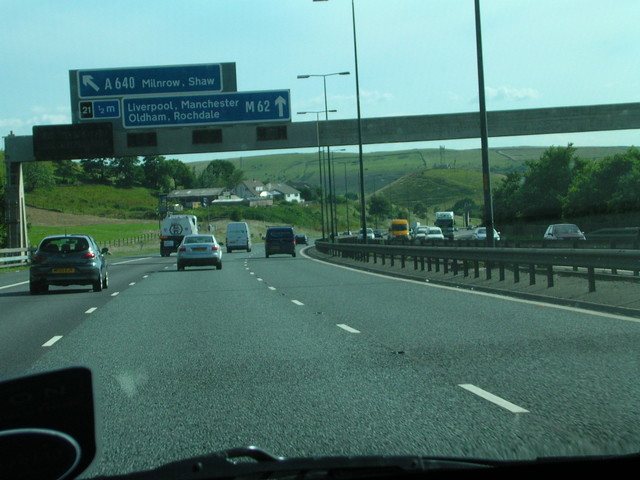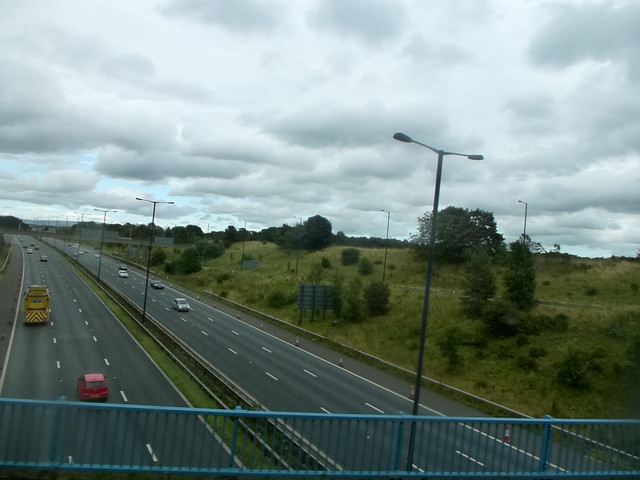Police have launched a tough new awareness campaign aimed at warning drivers of the dangers of hogging the middle lane of the motorway.
Highways England in conjunction with Cheshire Police are spearheading the no-nonsense new approach by telling drivers bluntly that they are more likely to die if they stay in the central lane.
In addition, drivers who insist on staying in the middle lane when there’s no need to also risk getting up to three points on their driving licences, along with a £100 on-the-spot fine.

Authorities started spreading the message yesterday via adverts posted up in motorway service stations, urging drivers to keep left or risk increasing their chances of a collision.
Currently rolled out throughout Cheshire, the campaign comes almost two years after middle lane hogging, tailgating and careless driving officially became offences punishable by law.
Andrew Jones, the Roads Minister, called central-lane motorists irritating and concerning to law-abiding drivers, saying they put other road users' lives in danger.
Last month, a van driver became the first motorist in the UK to be convicted for hogging the middle lane after being stopped by police on a stretch of the M62 in West Yorkshire.

Leeds Magistrates Court heard that the driver was caught refusing to leave the middle lane despite being given several opportunities to do so, and also caused several other drivers to swerve to avoid him.
Found guilty of inconsiderate driving, the unnamed driver was fined a total of £940 including a victim surcharge, and also received five penalty points on his licence.
PC Nigel Fawcett-Jones, from the Road Policing Unit of West Yorkshire Police, said: “It reduces the capacity of roads and motorways, and can lead to dangerous situations where other drivers 'tailgate' the vehicle in front to try and get the lane hogger to move over.
“Members of the public regularly tell the Road Policing Unit that lane hogging and tailgating are real problems on our roads and this conviction shows that the police and the courts understand the public's concerns and take this offence seriously.”



